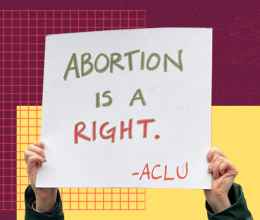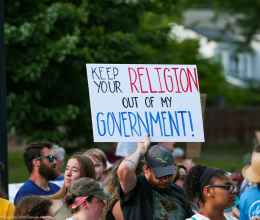When the Saint Joseph Regional Medical Center decided to vacate its 21-acre site in downtown South Bend, Ind., St. Joseph's High School was the only prospect to step forward with solid interest in acquiring the site. The school wanted to build a new high school on the property with athletic facilities including a football field. In order to do that, the school also wanted to purchase an adjacent property, which was home to a Family Dollar store, but was unable to negotiate that purchase. In June 2011, the City of South Bend approved a plan to use $1.2 million in taxpayer funds to purchase the Family Dollar property with the sole intention of transferring the land to the Catholic Diocese, which operates the school, for $1.
South Bend taxpayers contacted the ACLU of Indiana to stop the sale. We filed a lawsuit, Wirtz et al. v. City of South Bend in August 2011, along with Americans United for the Separation of Church and State and the ACLU's Religious Freedom Project, in the U.S. District Court, Northern District of Indiana, South Bend Division.
Taxpayers should expect public funds to go toward public needs on a religion-neutral basis.
We argued that the transfer of property to a religious school would violate the Establishment Clause of the First Amendment to the U.S. Constitution, and also would violate provisions of the Indiana Constitution. We said public funds should not be used to make a million-dollar gift to a Catholic school.
We won the lawsuit in September 2011 when the Court issued an order prohibiting the City from transferring the land to the religious school. The million-dollar gift, the Court said, "would lead an objective, well informed, reasonable observer to think the City is endorsing St. Joseph's High School, the local Catholic community or the Diocese that operates the high school."
The City of South Bend made further attempts to transfer the property, but eventually sold the land in a competitive bidding process to the school for $545,000. Even though the property had already been sold, the City filed an appeal in the U.S. Court of Appeals for the Seventh Circuit in December 2011. In February 2012, the Court dismissed the City's appeal for being moot and untimely.







